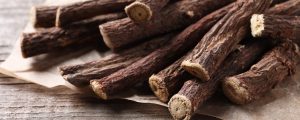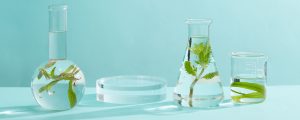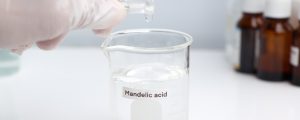We all wish to achieve the perfect skin – soft, smooth, unblemished and glowing.
As we progress our journey from adolescence to adult to old age, our skin also ages with us. Apart from aging, our skin must keep up with adolescence breakout, makeup products, pollution, sunlight and many more things.
Our skin is the body’s largest organ and requires additional nutrition to keep up with the changing environment.
Wondering what are the key nutrients required for your skin? Get on board the nutrition journey and include the following key nutrients in your daily diet to keep your skin healthy.
1. Omega-3 Fatty Acids
Omega-3 is an important and multipurpose nutrient for the body. Regular consumption of Omega-3 is beneficial for our cardiovascular health, joint inflammation, brain development, eye care, and skin protection.
Omega-3 helps in maintaining the health of skin cells, improving skin hydration, reducing skin inflammation, and reducing premature aging of the skin.
Omega-3 is an essential fatty acid and is not produced naturally by the body. Therefore, we need to obtain the daily requirement of Omega-3 from external sources. Some key sources of Omega-3 to include in your daily diet are –
– Fish (especially cold-water fatty fish such as salmon, mackerel, tuna, herring, and sardines)
– Nuts and seeds (such as flaxseed, chia seeds, and walnuts)
– Plant oils (such as flaxseed oil, soybean oil, and canola oil)
The recommended daily amount of Omega-3 is 1000 mg. If you are not able to include Omega-3 in your daily diet, you can consider TrueBasics Omega 3 supplements to fulfill your Omega requirement.
2. Antioxidants
Antioxidants play an important role in maintaining skin health.
Antioxidants protect skin against oxidative stress by scavenging free radicals. This helps correct the signs of aging and gives the skin a more youthful glow.
Antioxidants have anti-inflammatory properties and therefore protect against UV induced inflammation.
They are also helpful against preventing the photodamage thereby brightening the skin.
Astaxanthin, CoQ10, Resveratrol, Glutathione, Vitamin A, Vitamin C, Vitamin E are some of the key antioxidants for skin health.
Include grapes, berries, nuts, dark green vegetables, beans, and fish for your daily dose of antioxidants.
3. Silica
Although one of the lesser known, Silica is actually a naturally occurring mineral and present in food items such as water, vegetables, rice, and oats.
Silica is important for the optimal production of Collagen – the connective tissue in our skin. Collage synthesis improves the elasticity of your skin and reduces wrinkles.
Don’t confuse silicon with silicone. Silicone is the polymer family used for synthetic compound production.
Silica is also useful in reducing inflammation of your skin cells thereby keeping those acnes away.
The recommended daily amount of silica is 9 – 14 mg/day for adults in the age group of 19-50. However, a large intake of silica should be avoided by children, pregnant women, and kidney patients.
Apples, oranges, fish, oatmeal, and seeds are good sources of Silica that you can include in your diet. Bamboo extract is the richest known source with almost 70% organic silica.
4. Zinc
Zinc is an important trace mineral with significant skin health benefits.
Our skin is exposed and is often wounded. Zinc helps repair the damaged tissue effectively.
The oxide form of Zinc, Zinc Oxide, is a natural sunblock and protects the skin from the harmful UV rays.
Zinc also helps fight acne. Acne appears on the skin when the skin pores are clogged because of oil build-up, dirt, or bacteria. Zinc helps regulate the natural oil production by regulating sebum production in the body.
Men should consume at least 11 mg per day of zinc, while women should consume 8 mg of zinc per day.
Oysters, mushrooms, pecans, crab, lobster, beans, chicken, lean beef, and chickpeas are few of the rich sources of zinc
5. Vitamin A (Retinol)
Facing dry skin? your body might be missing Vitamin A and carotenoids.
Retinol stimulates the production of new skin cells. Lack of retinol in the body can make your skin dry.
Skin can readily absorb vitamin A when applied topically as it is a retinoid-responsive organ.
Common sources of vitamin A include meat, poultry, dairy, sweet potato, kale, and carrots.
The recommended vitamin A intake is 900 mcg for men and 700 mcg for women.
6. Vitamin B3
Vitamin B3 – scientifically known as Niacin – is an important nutrient for the skin
Consuming foods rich in Vitamin B3 assist in acne treatment and is especially beneficial for people suffering from rosacea or chronic redness of the skin.
Regular intake of niacin also helps in warding off signs of aging and increasing moisture in the skin.
The recommended daily amount of niacin is 16 mg/day for men and 14 mg/day for women.
Caution: Consult a doctor before consuming niacin supplements in case of pregnancy, liver diseases, peptic ulcer, or low blood pressure.
7. Vitamin C
Vitamin C is nature’s one of the best powerhouse nutrients.
It helps create collagen, the connective tissue that maintains firmness in the skin.
Vitamin C is an antioxidant that neutralizes the UV rays induces free radicals that affect the skin.
Vitamin C is also useful against oxidative damage that causes skin photodamage and wrinkles
Include citrus fruits, bell peppers, fruits like guava and kiwi, and green leafy vegetables to meet your vitamin C needs.
The recommended daily amount for vitamin C is 65-90 mg/day.
8. Vitamin E
Vitamin E is the basic ingredient for most skincare products.
Vitamin E is an antioxidant and neutralizes the free radical produced by the metabolism of food and toxins from the environment.
Vitamin E along with olive oil is often used as a treatment for rough skin.
Vitamin E can also help in protection from UV induced damage.
Avocado, Sunflower seeds, peanuts, almonds, Broccoli, tomatoes, spinach, kiwi, mangoes, and hazelnuts are some of the rich sources of Vitamin E.
Recommended daily intake of vitamin E is 15 mg/day
9. Vitamin K
Vitamin K helps in blood clotting and therefore plays a major role in curing wounds and bruises.
Vitamin K is also thought to help in certain skin conditions such as dark circles, spider veins, stretch marks, and scars.
Include kale, cabbage, liver, and spinach for your daily dose of Vitamin K
Recommended daily intake of Vitamin K is 90 mcg/day for women and 120 mcg/day for men.
10. Vitamin D
Vitamin D (the sunshine vitamin) plays an essential role in skin defense and skin rejuvenation.
Vitamin D contributes to skin repair, cell growth, and metabolism.
It also strengthens the skin’s immune system and helps neutralize free radicals that can cause early aging.
Mushroom, egg yolk, shrimp, oysters are some rich food sources of Vitamin D. However, the sun still remains the best source of daily Vitamin D.
The recommended daily intake of vitamin D is 400- 600 IU. However, an amount close to 1000 IU per day is recommended if you don’t get enough sunlight.
Caution: Through sun exposure body can produce vitamin D on its own, but too much sun hastens skin aging leading to wrinkles, sunspots, and increased risk of skin cancer.
11. Selenium
Selenium is another lesser known but an essential mineral for skin health.
This essential nutrient protects skin cells from sunlight induce damage.
Selenium is also an antioxidant and plays an important role in maintaining the immunity system. Selenium may help in fighting skin infections.
It is anti-inflammatory and can also help in slowing down skin aging.
Brazil nut is a rich source. A single nut can deliver twice the recommended daily intake of Selenium!
Chicken, tofu, shrimp, mushrooms are some of the selenium rich food sources.
The recommended daily intake for adults and children above 14 is 55 mcg/day.
Caution: Make sure not to exceed the tolerable upper limit of 400 mcg/day. Selenium overdose may cause infection as well as liver, kidney, and heart problems.
12. Vitamin B5
Vitamin B5, scientifically known as Pantothenic acid, helps in enhancing the proper healing of wounds when used as a topical treatment.
It also elevates levels of glutathione in the body which is a powerful antioxidant.
Intake and application of vitamin B5 can keep your cell membranes in good shape and provide protection against pollution, sun, and other external sources of skin stress.
Some potent sources of vitamin B5 are shellfish, fish, and chicken.
Recommended daily intake for vitamin B5 is 5 mg/day
Bonus: Collagen!
Collagen is an integral part of our skin health primarily because our skin is made of collagen.
As we age, natural collagen production in the body declines and may require supplementation from external sources.
Intaking external collagen supports the body collagen production and repair damage to the skin
Collagen helps keep the skin elastic, wrinkle-free, and supple.
Bone broth, meat, fish, egg whites, citrus fruits are rich sources of collagen.
Bonus: Water
Not exactly a nutrient, but drinking water regularly keeps our skin hydrated and prevents it from drying.
Water allows our cells to absorb nutrients and flush out toxins from our system.
Drinking at least 8-10 glasses/day can help in keeping skin hydrated and wrinkle-free.
Final Words
Daily consumption of key nutrients can provide your skin the much needed support to protect against internal and external factors.
They can also help improve skin health, texture and suppleness and keep the skin smooth, young, and wrinkle-free.













